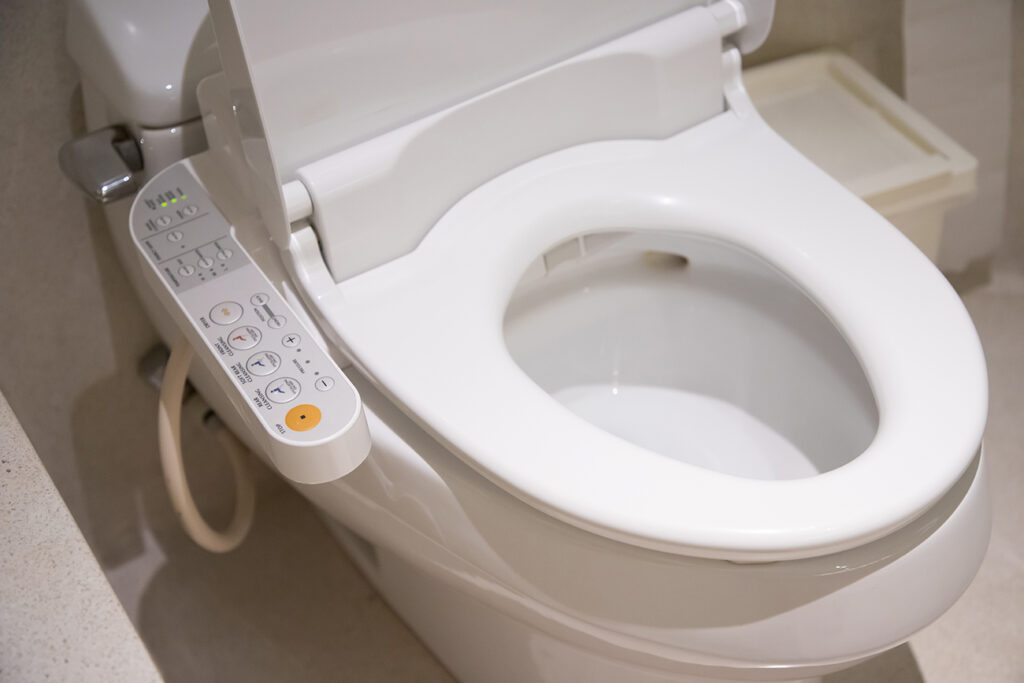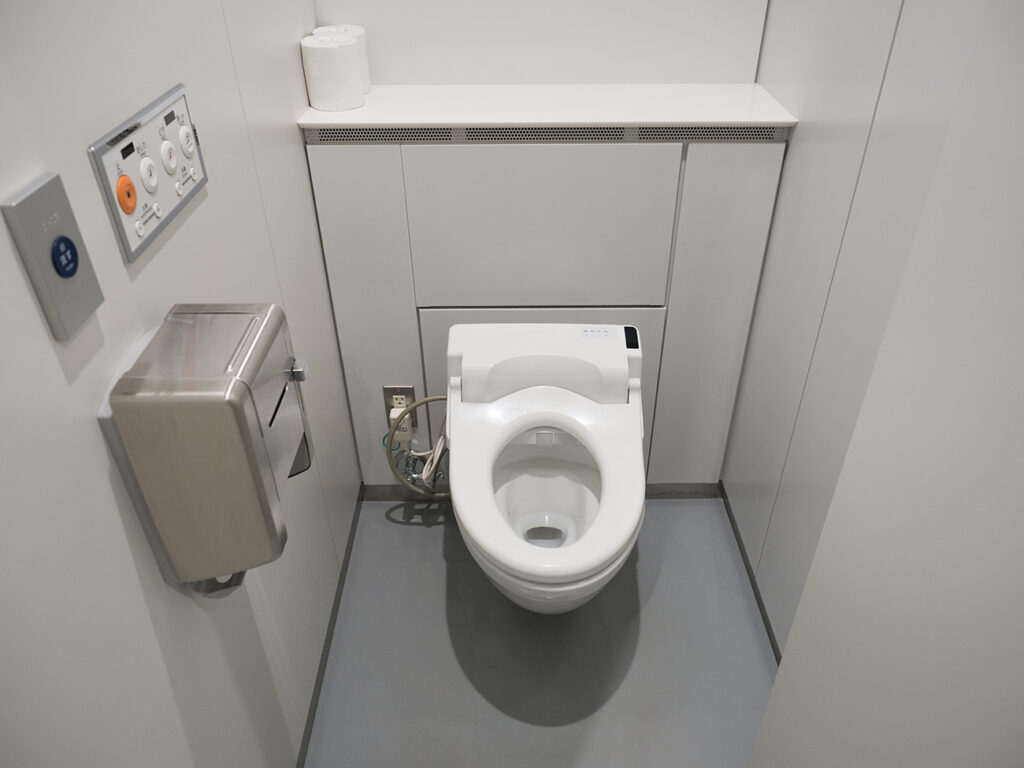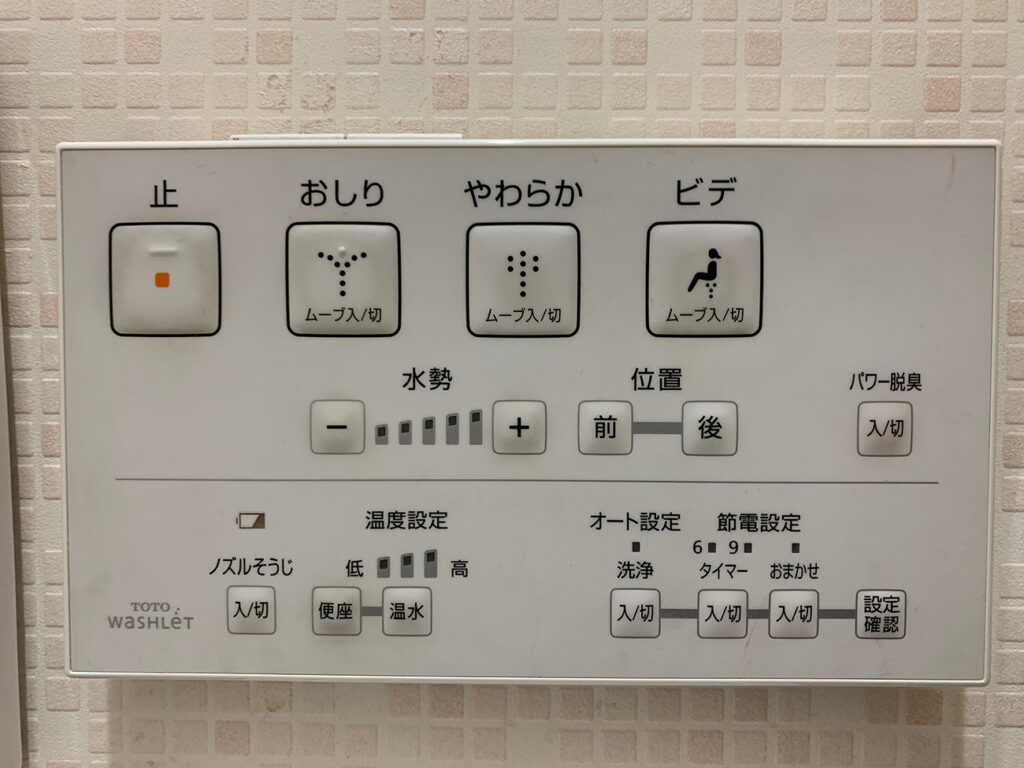
Japanese High-Tech Toilets 101
Japan is renowned for its contrasts, evident even in the modern urban landscape of Tokyo. Here, you can encounter traditional “washiki” toilets, reminiscent of a bygone era with their hole-in-the-ground design, alongside their starkly contrasting counterparts, the high-tech toilets of today. These futuristic “yoshiki” toilets not only offer superior comfort but also prove to be more economical in the long term. Despite the initial befuddlement one might experience with their array of buttons and functions, navigating Japanese high-tech toilets is surprisingly straightforward. Whether it’s your first encounter or a seasoned user, follow our simple guide from seating to flushing to seamlessly adapt to the experience.
Flush Functions (大 or 小)
Flushing on high-tech toilets in Japan isn’t as simple as a single push for most people. Despite the apparent complexity with numerous levers and buttons, understanding the basics is straightforward. Typically, these toilets offer two main functions: “大 – dai” (big/full flush) and “小 – sho” (small/half flush), indicating their respective strengths. Dai flushes utilize approximately double the water of sho for robust flushing needs, while “eco sho” conserves even more water than standard sho. Initially daunting, this setup reveals both innovation and eco-friendliness, simplifying flushing choices while promoting ecological practices.
Heated Toilet Seat
In Japan, most high-tech toilets now feature heated seats, offering a warm, comforting touch from the moment you sit down. This gentle warmth provides the perfect relief during the cold season. Additionally, you have the flexibility to adjust the level of warmth according to your preference and even deactivate the heating function altogether during the summer months.
Toilet Seat and Lid Lifter
You might find yourself pleasantly surprised by the intuitive features of Japanese high-tech toilets, which seem to anticipate your needs from the moment you step in. Many of the latest models come with sensors that detect your approach and automatically lifts the lid. While this feature is commonly found in restaurants, health, and beauty establishments due to its high level of hygiene, it’s not as prevalent in homes.
Washlet
Introduced in 1980 to reduce toilet paper consumption, the Washlet toilet stands as a hallmark of “Cool Japanese products,” now commonplace in department stores, hotels, expressway restrooms, and train stations. Control panels are either side-mounted or wall-mounted, offering similar functions. A warm water shower cleanses with adjustable position, range, and intensity, featuring functions like “bidet,” “oshiri” (bottom), and “yawaraka” (soft). Some models include a warm blow-drying feature. Initially daunting, these features become addictive, with many foreigners purchasing them for home use. Rumors even suggest Hollywood celebrities have adopted them. Experience firsthand; sit down and discover the comfort and convenience for yourself.
Toilet Sounds
One of the pioneering features in the realm of Japanese high-tech toilets is the “oto-hime,” or “sound princess.” This ingenious addition consists of a continuous loop of soothing recorded sounds, often resembling flowing water, strategically designed to conceal any unwelcome noises while using the facilities. Originally introduced for women’s public restrooms, hence the whimsical name “princess,” this feature has now become commonplace in most public toilets. It can typically be found as a designated button on the toilet panel or as a standalone device. Recent advancements include timed sound options that automatically cease after 25 seconds, as well as adjustable volume settings to cater to individual preferences.
Automatic Deodorizing and Automatic Fragrance Feature
There are Japanese toilets that offer automatic deodorization and fragrance release upon standing up. While some toilets include this feature automatically, others utilize a wall-mounted deodorizer set to dispense aromatic sprays at scheduled intervals or triggered by sensors, maintaining a pleasant scent consistently. Typically integrated into a distinct cleaning system, this feature is prevalent in public restrooms across Japan, contributing to a fresh and inviting environment.
How to read Japanese words on a toilet panel
Nagasu 流す – Flush
Pawâ dasshû パワー脱臭 – Deodorizer
Oshiri おしり – Spray the bottom
Bide ビデ – Bidet
Yawaraka やわらか – Soft wash
Onsui 温水 – Warm water
Tomeru (Teishi) 止(停止)- Stop
Suisei 水勢 – Water pressure
Nozuru souji ノズルそうじ – Cleaning the nozzle
Senjô ichi 洗浄位置 – Position
Ondo settei 温度設定 – Temperature
Benza 便座 – Seat


